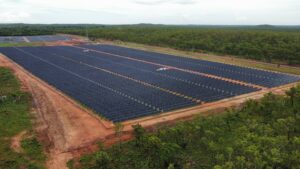What is a Power Purchase Agreement?
A Power Purchase Agreement (PPA), also known as an electricity power agreement, is a significant and long-term contract that establishes a partnership between an electricity producer and a customer, typically a utility, government entity, or company. This agreement spans a considerable period, ranging from 8 to 20 years, during which the power purchaser commits to buying energy at a predetermined price.
Who should consider a PPA?
These agreements serve a crucial role in supporting independently owned electricity generators, particularly those focusing on renewable energy sources like large scale rooftop installation or solar farms. By providing a stable income stream through the agreed-upon pricing, PPAs play a key role in financing and encouraging the growth of renewable energy projects.
In recent times, commercial solar PPAs have seen an evolution in the context of distributed generation, where the electricity generator is situated on-site, and the produced energy is directly purchased by businesses, schools, or governments instead of going through the traditional utility route. This approach has proven advantageous as it facilitates the financing of distributed generation assets.
How is a PPA price negotiated?
PPAs come in two primary forms: one for a fixed amount of electricity, and the other for a specific portion of the electricity generated by the seller. In both cases, the pricing can either be a fixed rate per kilowatt-hour or can vary based on fluctuating market rates, depending on the specific terms outlined in the contract.
Resourceful Energy has the ability to provide a PPA solution….
The global trend of embracing PPAs has been on the rise, with more than 137 firms in 32 countries reporting the signing of power purchase agreements in 2021. This highlights the growing commitment towards sustainable energy solutions and the vital role of PPAs in achieving a greener and more energy-efficient future.


